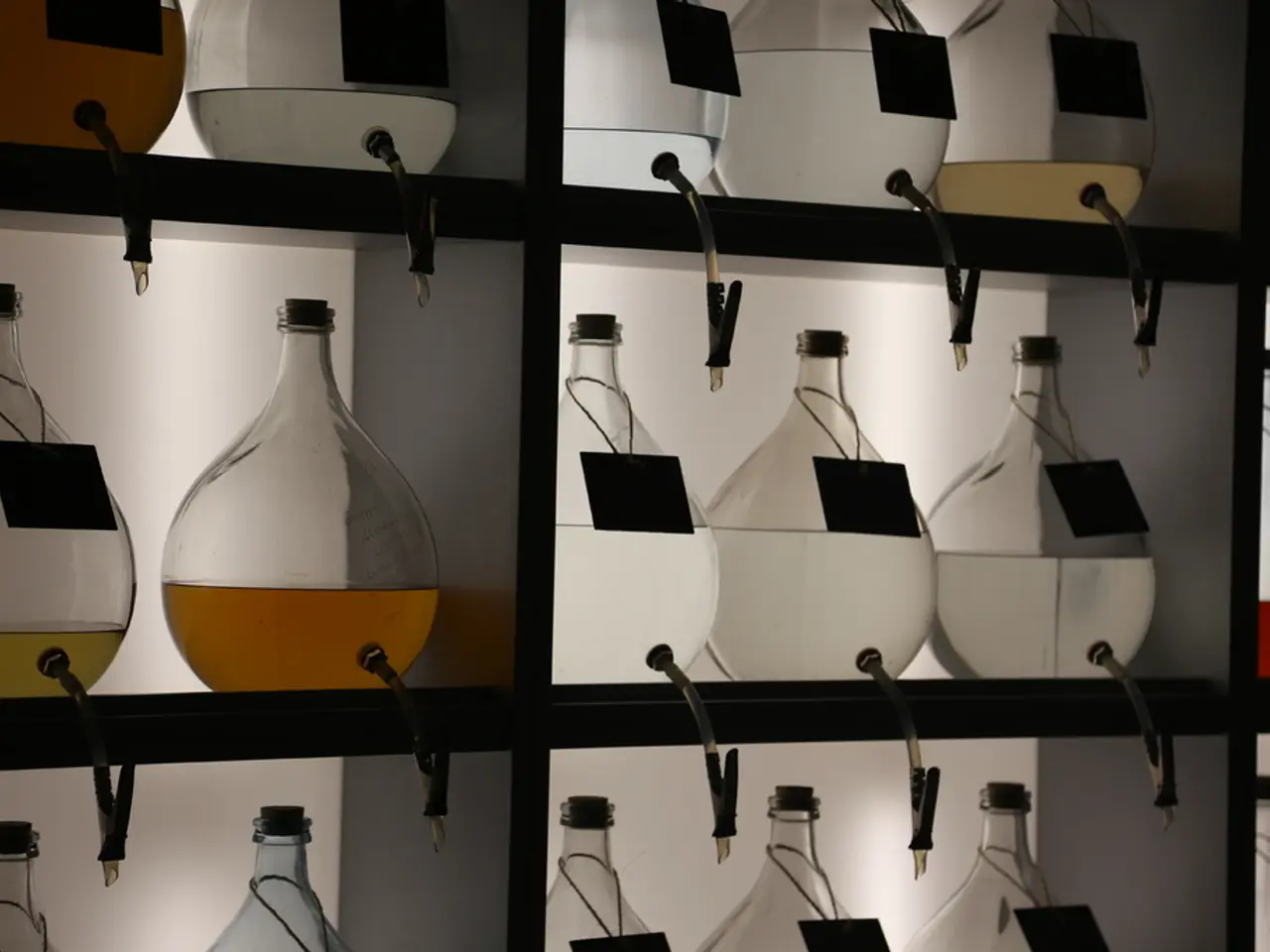Types and Remedies for Herpes Sores
HSV-1, traditionally known for causing oral herpes, is increasingly being recognised as a significant factor in genital herpes infections. This shift is due to the transmission of the virus through oral-genital contact[1]. The rising incidence of HSV-1 in genital infections is contributing to a growing global burden of the disease, alongside HSV-2[2].
Current treatment and control strategies for herpes simplex virus (HSV) infections involve antiviral drugs such as acyclovir. However, there is growing concern about the development of viral resistance, particularly in immunocompromised patients[3][5]. New treatments are on the horizon; for instance, Assembly Biosciences recently reported an investigational drug (ABI-5366) that demonstrated a 94% reduction in viral shedding in genital herpes caused by HSV-2. This could pave the way for broader HSV treatment in the future[1].
While both oral and genital herpes infections are lifelong as the virus remains latent in nerve ganglia and can reactivate[2], regular antiviral therapy can help manage symptoms, reduce outbreaks, and lower transmission risk[2].
Complications associated with herpes infections differ by site and patient risk factors. Oral herpes (HSV-1) usually causes cold sores and is generally mild in healthy people. However, it can lead to complications in immunocompromised individuals or newborns, such as herpetic whitlow (finger infection), ocular herpes (leading to keratitis and potential vision loss), and in rare cases, encephalitis[2][3].
Genital herpes (HSV-1 or HSV-2) causes painful genital lesions and recurrent outbreaks. Complications can include increased susceptibility to other sexually transmitted infections (including HIV), neonatal herpes if transmitted during childbirth (which can be life-threatening for newborns), and psychological distress due to the chronic nature and stigma[2].
In the United States, approximately 572,000 new genital herpes infections occurred in 2018[4]. Complications such as vaginal yeast infections, bladder problems, meningitis, and bacterial superinfection are more likely to occur during the first outbreak of genital herpes[2].
Topical treatments are not effective for genital herpes. Treatment for the first outbreak involves antiviral medications as soon as symptoms appear[6]. For subsequent outbreaks, antiviral therapy can help reduce symptoms and shorten the duration of infection[2].
Close contact with a person who has oral herpes, such as kissing or oral sex, can lead to infection. Sharing certain objects, such as lip balm and silverware, with a person who has oral herpes can also cause infection[7]. People can get genital herpes by having oral, vaginal, and anal sex with someone who has HSV. They may also contract HSV from a partner who does not have a visible sore and is unaware of their infection[8].
People who have frequent outbreaks of genital herpes may benefit from taking daily antiviral medications to decrease outbreaks and viral shedding[9]. In most cases, herpes ulcers can heal by themselves. When they do not, antiviral medications can be extremely effective for both oral and genital herpes[10].
Antiviral medications for genital herpes may include valacyclovir, famciclovir, or acyclovir. These medications can help reduce symptoms and shorten the duration of infection[11]. According to the Centers for Disease Control and Prevention (CDC), in 2015, approximately 50% of people ages 14-49 years were estimated to have antibodies for HSV-1[12].
In summary, HSV-1 is now a recognised cause of genital herpes with increasing global prevalence; both HSV-1 and HSV-2 cause lifelong infections with potential complications most problematic in immunocompromised individuals and newborns. Advances in antiviral treatment are ongoing but no cure is currently available[1][2][3][5].
References:
- Assembly Biosciences Announces Positive Topline Results from Phase 2b Study of ABI-5366 in Patients with Genital Herpes
- Genital Herpes
- Genital Herpes: Causes, Symptoms, and Treatments
- Genital Herpes: Epidemiology and Clinical Characteristics
- Antiviral Resistance in Herpes Simplex Virus
- Genital Herpes: Diagnosis and Management
- Oral Herpes: Causes, Symptoms, and Treatments
- Genital Herpes: Transmission
- Genital Herpes: Prevention
- Oral Herpes: Treatment
- Antiviral Medications for Genital Herpes
- Herpes Simplex Virus Type 1 Seroprevalence Among Adults Aged 14–49 Years — United States, 2015–2016
Read also:
- Explored the Popular Health Assessment with a Queue of 100,000 Aspiring Participants - Here's My Unadulterated Opinion
- Hearing impairment condition: Recognizing symptoms and management approaches
- Signs of Cataracts Emergence: Impact on Vision and Further Details
- Thrombocytopenia in Large Scale: Root Causes, Identifiable Symptoms, and Available Treatment Options





